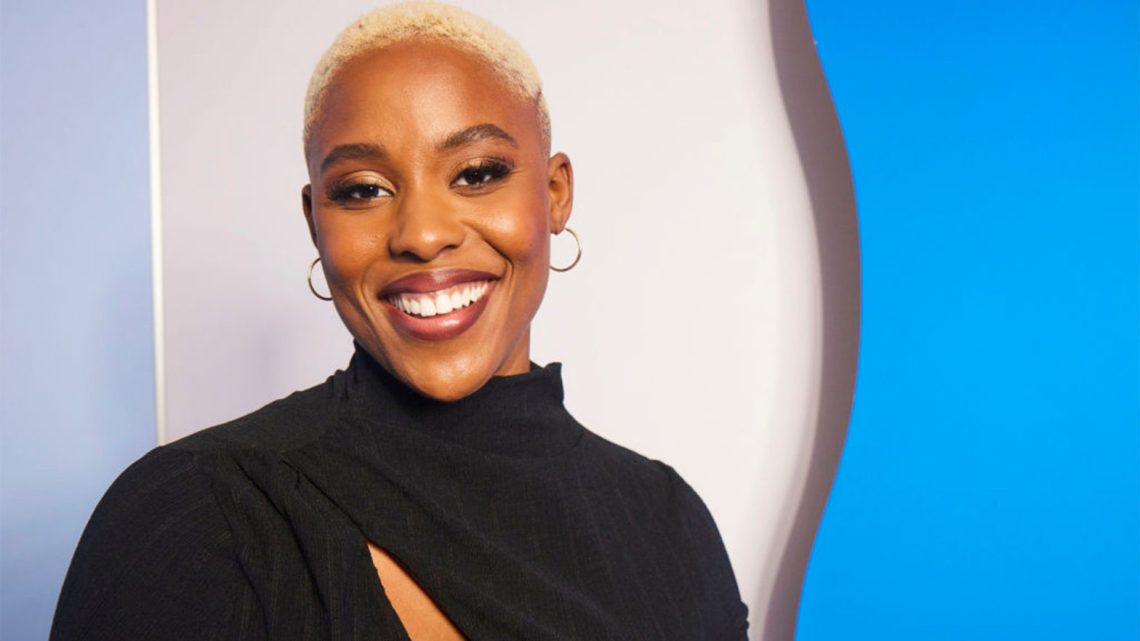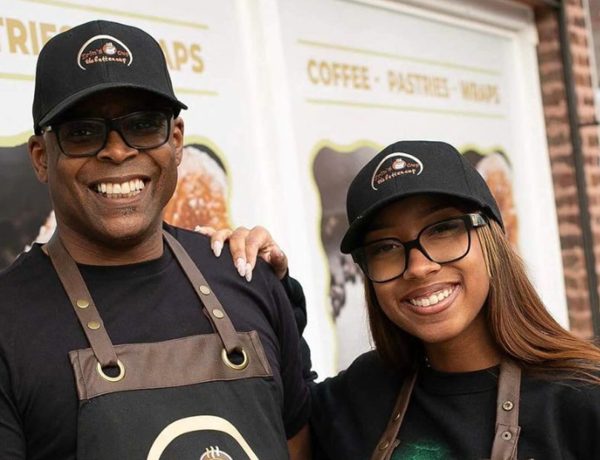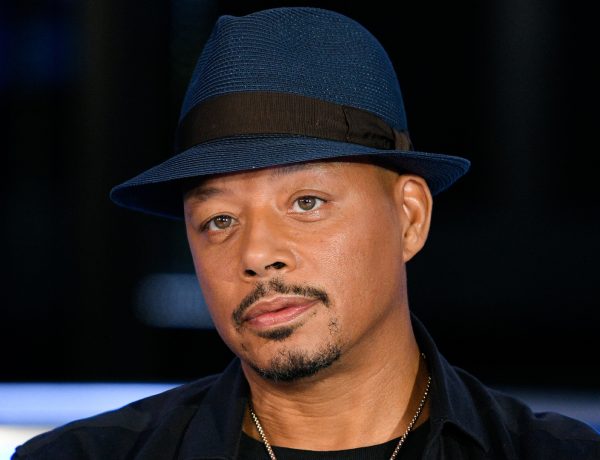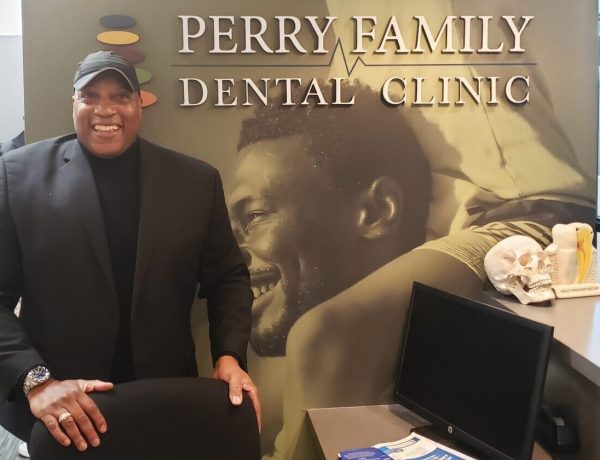Jerrie Johnson is one of the stars leading Prime Video’s hit series “Harlem,” which made its return on Feb. 3.
The post Actress Jerrie Johnson Talks Playing A Black Queer Woman In Tech On ‘Harlem’ appeared first on AfroTech.
Her character, Tye, joins castmates Meagan Good (Camille), Grace Byers (Quinn), and Shoniqua Shandai (Angie), who remind us of the beauty of sisterhood.
On the other hand, the storylines following the characters also indicate the often not-so-linear journey of love and finding fulfillment.
In an interview, Jerrie Johnson shared with AfroTech that she manifested working with a like-minded cast that exudes the same love seen between their characters, off the screen.
What’s more, “Harlem” not only afforded her a shot of experiencing true friendship in the entertainment space. It also allowed her to represent a rarity across industries and show why representation matters as a Black queer woman in tech.
We spoke with the star to talk about what it’s like playing a tech guru running her own firm called Q, creating an app in real life, and more.
Editorial note: Portions of this interview have been edited and condensed for clarity.
AfroTech: With Black professionals making up less than 10 percent of the tech space, can you describe how you felt about taking on a character that leads a tech company?
Jerrie Johnson: I was excited when I read it because it was something that I had never seen before. I think if maybe somebody else was writing this same script, I think they would have made Tye a man because that’s what it feels like on paper, right? Like ‘Oh, if she’s the head of a tech company and they’re confident and they’re a boss, this must be a male character.’ So, for it to be written by a woman and to be played by a woman, let alone a Black woman, for me, I was like ‘I have to do this’ because I’m from North Philly. We didn’t have access to technology as quickly as the rest of the world and that’s the conversation that’s important to me.
I wanted this legacy for my nieces and nephews, my future children, and a lot of Black kids who are coming up and to know that there is something that they can do or maybe something that they’re interested in in the tech world but doesn’t have the resources to do it. I want them to be inspired.
There is something that I’ve been wanting to do, which is to create these healing houses in Philadelphia and other underserved, neighborhoods, but North Philadelphia to start, in particular, because that’s where my home is, where children can come and have access to tech rooms, meditation rooms, farming and teaming up with Black farmers, just to be able to have those resources
AT: We often hear founders share their difficulties in starting a business. What can viewers learn about building an app from the ground up?
JJ: I think having community, and Tye is a person who has been in it building those resources, making those connections, and using her charm to get the things that she wants.
I want to also point out that we have to learn things like grant writing. We have to have access to different festivals and things, which cost money. Having a Kickstarter costs money. So, figuring out how to utilize your resources and the right people.
The reality is, any Black-owned business, a Black-owned tech company, that’s somebody’s building from the ground up. You need the white dollar too, right? You need that white investment just because Black people right now in America, for all of the historical reasons, don’t have that same capital, but I think we are moving toward that space. We’re moving toward seeing more Black moguls, more Black millionaires and billionaires. And this is not a conversation about capitalism, but just about generational wealth — that’s something that you can pass down.
There was a lot of walking out on faith for Tye, but also a lot of being clear about this is what I want, this is the community that my app is gonna serve, and I am calling in only things that align with that vision.
AT: Audiences will continue to watch Tye work through personal health struggles. Without spoilers, are there any areas of improvement that you would suggest for Tye as she balances her health journey and leading Q?
JJ: We’re in such an age of perfection or at least the resemblance of perfection. So, I hope that we’re getting to a time where there can be ease along the way of becoming a boss. Hopefully, representation allows for ease for future Black entrepreneurs, and I think that for Tye, there were a lot of things that maybe she had to ignore to fulfill the vision to be the first in so many different sectors to make her dreams as big as she saw them be and that meant some sacrifice in health that meant some sacrifice in love and really not paying attention to the body.
This season Tye has to address the issues that she had been pushing aside. She has to address her health. She has to address what Brandon told her about not having love in her life. She has to look at herself in a different way that maybe if she didn’t pass out on that subway platform, she wouldn’t have had to address.
So, I think health works out that way. The body works out that way. This ease happens when we are ignoring those health concerns, and she can’t take this business with her to the grave. So, it’s like ‘Yeah, you want to live a life and you want to build all of these things, but I think just for Black people, I hope that we’re getting to a point where we can prioritize health.
I think that just the awareness of the body is something that maybe Tye is having to think about, and maybe her business isn’t all there is in life.
AT: Would you ever create an app?
JJ: I’m down to create one. Listen, when we were talking about Q, I was thinking about how Q can exist in the real world. We can have community engagements. We can have a place where people can talk about what cities and states are safest for queer Black people. Where should you stay? Are you driving across the country? What route to take? Where should you sleep? My wheels are always turning.
During Christmas, we were playing this card game. One of the questions was ‘If you could create an app, what would it be?’ My app was health-centered.
It was like maybe you can put your finger on the app and it can tell you if your blood pressure is too high or your sugar ’cause my dad has diabetes and my mom and my family, we just have blood pressure issues. I know, for my family, there is a side eye when it’s time to go to the hospital or the medical system, and rightfully so. Our medical system was actually built on the bodies of Black people, Black women, and children, non-consensually. So, we’ve been taken advantage of and no shift happened where all of a sudden it was like, ‘Oh, Black people are free. Let’s treat them better in healthcare.’
So, I think for me that might look like Black people in underserved communities being able to go to the doctors or Black women who are suffering from fibroids and this app being the second opinion, maybe it’s called Second Opinion. Oh my God, right? Let’s talk about this.
I would love an app for people to find Black doulas when they’re pregnant ’cause I have so many friends who have been pregnant or have had a baby in the past six months, and the doula conversation comes up. I’ve always wanted to be trained to be a doula because I want to have my children, right? Whenever my partners are pregnant, I want to be the doula for my partners. That’s something that I’m interested in.




